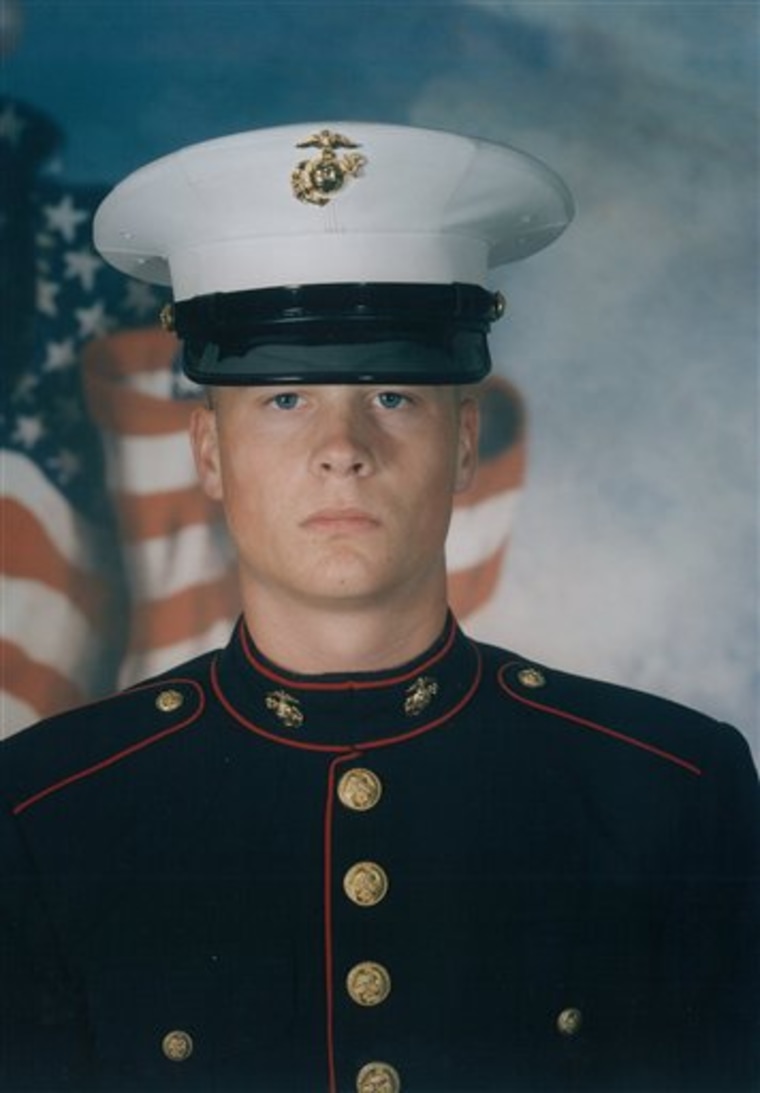Defense attorneys on Saturday lambasted U.S. indictments against decorated war veterans for deadly 2007 shootings as Iraqis welcomed the charges against five Blackwater guards in a case that fueled anti-Americanism and roiled diplomacy with Baghdad.
Charges against Blackwater security guards will be unsealed Monday, more than a year after the fatal shootings of 17 Iraqi civilians. Iraqis hope the charges will finally bring justice and improve relations with the United States after the gruesome slayings on Sept. 16, 2007.
Defense lawyers say the case has unfairly tarnished the images of the Blackwater guards. Each man has received honors for his service in some of the world's most dangerous places, from Bosnia and Afghanistan to Iraq. The five were to surrender to the FBI on Monday, when the Justice Department plans to unseal the charges against them.
"These are indictments that never should have been brought," said Mark Hulkower, a lawyer for Army veteran Paul Slough of Keller, Texas.
Attorney David Schertler, who represents former Marine Dustin Heard of Knoxville, Tenn., said the guards "were defending themselves and their comrades who were being shot at and receiving fire from Iraqis they believed to be enemy insurgents."
According to their lawyers, the other men charged are Donald Ball, a former Marine from West Valley City, Utah; Evan Liberty, a former Marine from Rochester, N.H.; and Nick Slatten, a former Army sergeant from Sparta, Tenn.
A sixth suspect was in negotiations to plead guilty to lesser charges in exchange for his cooperation against his former colleagues. Documents related to that matter remain sealed as well.
Iraqis said Saturday they look forward to the trial.
"I think it is a move in the right direction to make the security company employees realize that they are no longer above the law and they should stop behaving like cowboys on the streets of Baghdad," said Mohammed Latif, 52, a retired police officer.
He said he hoped the indictments were not just "an act of propaganda."
Slough, Ball, Heard, Liberty and Slatten have been under investigation since a convoy of heavily armed Blackwater contractors opened fire in Baghdad's Nisoor Square. The dead included young children.
Witnesses say the shooting was unprovoked. Blackwater, hired by the State Department to guard U.S. diplomats, says its guards were responding to a car bombing and were ambushed by insurgents.
The shooting strained relations between the U.S. and Iraq, and provided fodder for anti-American insurgent propaganda videos in Iraq. Top Blackwater officials were ordered to appear at congressional hearings in Washington.
An Iraqi government spokesman, Ali al-Dabbagh, said Baghdad welcomed any attempt to "hold the criminals accountable for their crime." He said the Iraqi government has hired lawyers to seek money for the victims' families.
The charges come after 14 months of investigative missteps, legal wrangling and fierce debate within the U.S. government — and the Justice Department itself.
Among the hurdles the government now faces:
- Whether U.S. law permits civilian contractors to be charged in the United States for crimes committed overseas. Prosecutors must convince a judge that the guards can be charged under a law targeting soldiers and military contractors — even though Blackwater works for the State Department.
- Prosecutors are expected to argue that, if not for Blackwater, military personnel would provide diplomatic security. In that way, Blackwater could be seen as supporting the Defense Department's mission.
- Convincing a jury that a drug law intended to crack down on assault weapons should be used to pump up potential penalties against the guards. The five men are expected to be charged with assault or manslaughter under a provision in the 1988 Anti-Drug Abuse Act that requires 30-year prison terms for using machine guns to commit violent crimes, whether drug-related or not.
- Proving that prosecutors did not rely on protected statements the guards gave to State Department investigators within hours of the shootings. The State Department gave limited immunity to all the guards in the four-car convoy, promising not to prosecute them based on the initial statements recounting how the violence began.
Additionally, under its contract with the State Department, Blackwater was allowed to repair and repaint the armored sport utility vehicles involved in the shootings. Also, legal complications resulting from the immunity agreements delayed the FBI investigation for more than two weeks after the shootings.
Taken together, the missteps left national security prosecutors with a crime scene long cold and limited forensic evidence to bolster their case.
Since then, the Justice Department has relied on witnesses to the shootings and relatives of the civilian victims in trying to persuade the grand jury to indict. Several Blackwater guards who were in the convoy were ordered to testify against their colleagues.
Still, U.S. human rights advocates continue to criticize the Justice Department for waiting 14 months to bring charges.
Deborah Colson, interim director of Human Rights First's Law and Security program, said the delay was "a significant contributing factor to fostering a culture of impunity that threatens the safety of Iraqi and Afghan civilians, American military personnel and the contractors themselves."
"Contractors perform necessary and often courageous service, but letting even a few act with impunity stains our reputation and undermines the credibility of our efforts," Colson said in a statement.
